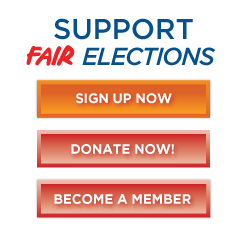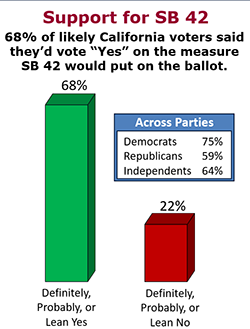How Prop 15 Addresses the Supreme Court
Supreme Court Unleashes a Flood of Corporate Money
On January 21, 2010, the Supreme Court ruled in the case of Citizens United v. FEC that corporations may independently spend unlimited amounts of money to attack or promote candidates for federal office. The ruling undermined federal campaign finance laws dating back more than 100 years and potentially unleashes a flood of corporate spending on campaigns.
Prop 15 is the Answer
The Citizens United ruling will have no impact on California's ability to implement Prop 15's voluntary system of public financing for Secretary of State candidates. The Supreme Court has consistently upheld public financing provisions like those contained in Prop 15.
- Under Prop 15, candidates would be banned from raising any money from corporations or other sources and would receive enough public funds to compete with candidates that are backed by corporations or other private interests.
- The ruling illustrates yet again that Fair Elections public financing of campaigns is by far the best solution to ending the corrupting effects of the outrageous amounts of money in politics.
- The ruling provides an even greater urgency for adopting fair elections in California and nationwide. These programs have a strong track record of success in Arizona, Connecticut, Maine, New Mexico, North Carolina and elsewhere.
- Like California, Maine has never had corporate expenditure limits, yet their Fair Elections system is strong enough that 85% of their legislature was elected using it anyway.
- California is poised to take an important step in changing the way we finance election campaigns so elected officials are accountable to voters, not donors. This June, California will be the next state in the country to do exactly that — with your help.
Get the Handout
Print PDF version of this page (pdf)



